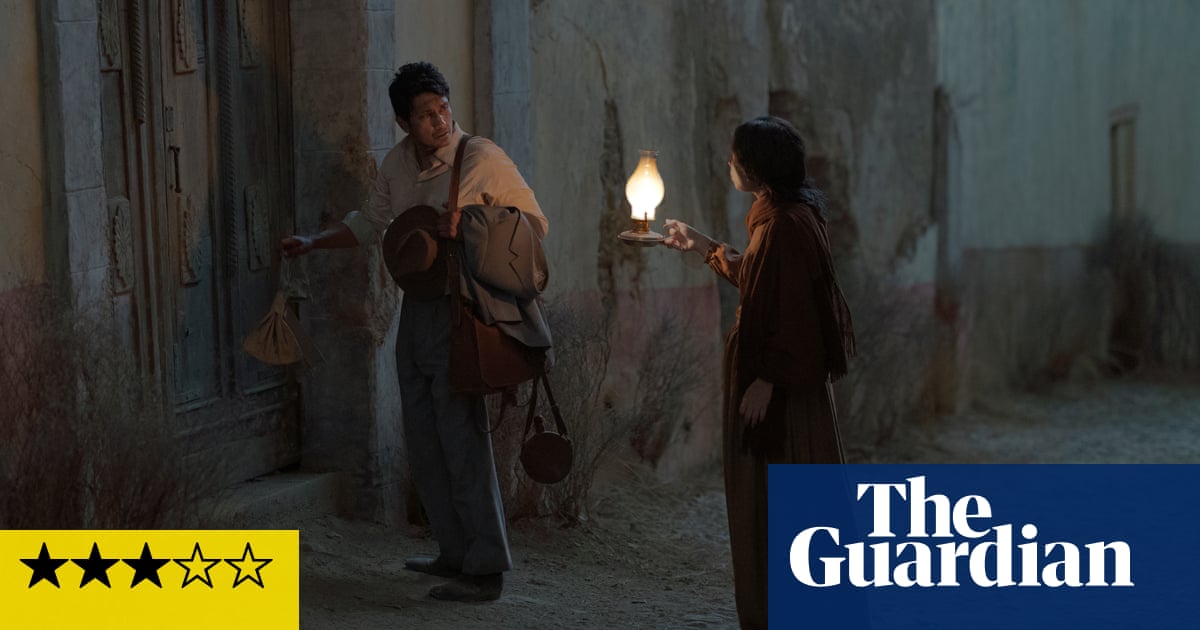Here is a new adaptation of Juan Rulfo’s 1955 magic-realist novel that later inspired Gabriel García Márquez, among others; judging by the non-linear tangle of life and death, lost loves and shattered ideals, you wonder if it wasn’t also an influence on the fractured films of the 00s Mexican new wave written by Guillermo Arriaga. With Amores Perros cinematographer Rodrigo Prieto serving as director here, this fragmentation is at first a tough introduction to the story’s teeming ghost town, then thrilling, then finally a problem.
Juan Preciado (Tenoch Huerta) has made a promise to his mother on her deathbed: that he will return to the fateful pueblo of Camala to finally meet his father Pedro Páramo. But who is Páramo? “A living resentment,” says the first wayfarer Juan encounters, before directing him to lodge with local innkeeper Eduviges (Dolores Heredia). After showing Juan to a bare attic room, she says that she has heard from his mother – the first sign that this ashen town is in truth a purgatory filled with wandering souls. The one thing they all have in common is a tale connected to the tyrannical landowner Pedro Páramo and his estate, La Media Luna.
After a disorientating first half-hour that both asks us to get cosy in this stygian gloom, while throwing out flashbacks to the young, spoilt Páramo, the storytelling mode slowly coheres. Cycling between a variety of vassals in Páramo’s orbit, the time slippages, perspective shifts and suddenly exposed half-truths are fitting ways of describing the unstable terrain of late 19th-century rural Mexico; a feudal, power-riven hellhole over which Páramo exercises droit de seigneur, but is paradoxically chasing his own lost innocence.
The multiplicity gradually overwhelms this version, though. We don’t spend enough time with Páramo’s bluff foreman Fulgor (Hector Kotsifakis), mendicant-turned-pimp Dorotea (Giovanna Zacarías) or any other character to entirely grasp what they represent in this fresco of spiritual degradation. And an underpowered Manuel García-Rulfo seems miscast as the black hole at its centre; he captures the sad absence that is Páramo, but not his wanton autocratic side. Strangely, given Prieto’s visual acumen, the film is also a bit bland visually, bar a flashy prologue kicked off by the camera sinking into the bowels of the earth. But the story has enough residual power to deliver a dark night of the Mexican soul nonetheless.
after newsletter promotion

